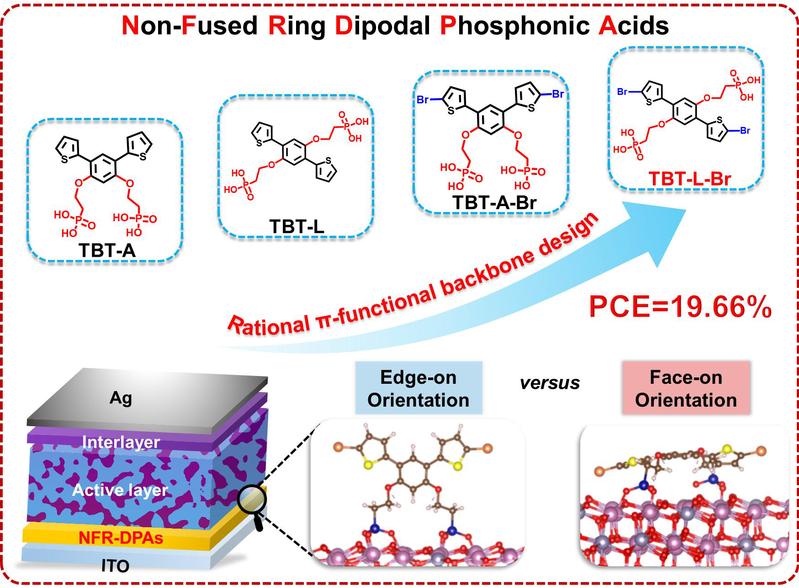
Non-fused ring dipodal phosphonic acids boost organic solar cell efficiency
A recent study conducted by Prof. Yao Liu’s research group proposed the design and synthesis of non-fused ring dipodal phosphonic acids as efficient charge transport materials in organic solar cells. Nonfused ring dipodal phosphonic acids outperform traditional charge transport materials, such as the widely used and commercially available PEDOT: PSS. These novel charge transport materials not only show versatility across diverse solar cell systems, but also enables impressive solar cell efficiencies up to 19.66%, highlighting the power of non-fused ring dipodal phosphonic acids as charge transport materials in advancing photovoltaic technology.
The work entitled Configurational Isomerization-Induced Orientation Switching: Non-Fused Ring Dipodal Phosphonic Acids as Hole-Extraction Layers for Efficient Organic Solar Cells was published in Angewandte Chemie International Edition. The co-first authors for this paper are PhD candidates: Lei Zhang and Yuxing Wang from Beijing Advanced Innovation Center for Soft Mater Science and Engineering. The corresponding authors are Profs. Yao Liu and Wenxu Liu from Beijing University of Chemical Technology, and Prof. Hyunbok Lee from Kangwon National University at South Korea.
Article information: Lei Zhang, Yuxing Wang, Junjie Wen, Yifan Huang, Jiaxin Gao, Yuxin Duan, Soohyung Park, Woojin Shin, Zaifei Ma, Miao Liu, Sang Wan Cho, Yeonju Park, Young Mee Jung, Hyunbok Lee, Wenxu Liu, and Yao Liu, Angewandte Chemie International Edition 2024. e202408960.
More information can be found at:https://onlinelibrary.wiley.com/doi/10.1002/anie.202408960
